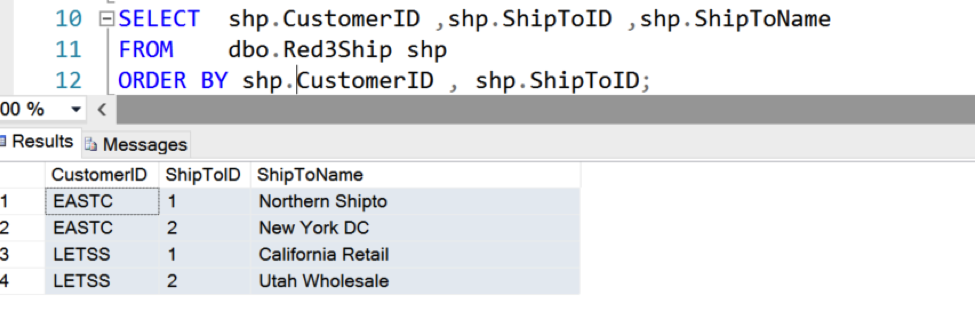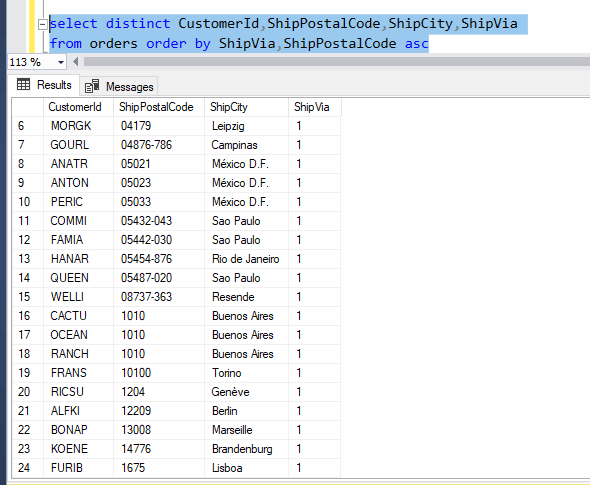

If we omit a column, then the join may return duplicate rows. The first is when a table’s logical key involves multiple columns. * FROM left_tbl LEFT JOIN right_tbl ON left_tbl. Why use multiple join conditions We join on multiple conditions to reduce the number of possible matches.
MYSQL JOIN ON MULTIPLE COLUMNS HOW TO
For more information, see How to force query plans. My question is what will be the fastest/most efficient way to do this. The ordering of a two-column index is therefore like the ordering of a telephone directory: it is. Index hints can be specified to affect how the MariaDB optimizer makes A concatenated index is one index across multiple columns. See System-versioned tables for more information

In general, parentheses can be ignored in join expressions containing only INNER JOIN (they can replace each other). In MariaDB, CROSS JOIN is a syntactic equivalent to

Is equivalent to: SELECT * FROM t1 LEFT JOIN ( t2 CROSS JOIN t3 CROSS JOIN t4 ) ON ( t2. For example: SELECT * FROM t1 LEFT JOIN ( t2, t3, t4 ) ON ( t2. Table_reference items as equivalent to an inner join. This is a conservative extension if we consider each comma in a list of List of them inside a pair of parentheses. The latter accepts only table_reference, not a The syntax of table_factor is extended in comparison with the See Identifier Qualifiers for syntax details. This allows to write queries which involve multiple databases. | ] (index_list)Ī table reference is also known as a join expression.Įach table can also be specified as db_name. SELECT FROM t1 LEFT JOIN (t2, t3, t4) ON (t2.a t1.a AND t3.b t1.b AND t4.c t1.
MYSQL JOIN ON MULTIPLE COLUMNS UPDATE
Multiple-table DELETE and UPDATE statements: table_references: The table_references part of SELECT statements and Since both columns in votes may be null you need to be careful.MariaDB supports the following JOIN syntaxes for We can, therefore, check if any column from votes is null in the WHERE clause. If there are no rows that match the ON predicate's, all columns from votes is replaced with null in the result. This option follows the name of the table and precedes any alias declaration. A table reference (when it refers to a partitioned table) may contain a PARTITION clause, including a list of comma-separated partitions, subpartitions, or both. Since there may be nulls involved it is worth noting that the semantics differs between IN and EXISTS.įinally, you can use an outer join select election_id, title A table reference is also known as a join expression. The NOT IN predicate can be used in a similar fashion. the election where it does not exists a vote from the user. Even though you have not tagged your question, there is reason to believe that you are using MySQL, and MINUS or EXCEPT is not supported there.Īnother variant is to use the NOT EXISTS predicate: select election_id, title The result can be joined with elections to get the title of the elections. be defined as a single column or the combination of two columns in a table. Select election_id from votes where user_id = ?įrom the set of elections, we remove those where the user has voted. The SQL query below will select Name, Age columns from the Patients table. Minus - except is used instead of minus by some vendors INNER JOIN is used with an ON clause, CROSS JOIN is used otherwise. In standard SQL, they are not equivalent. Perhaps the most straightforward way is to use a purely set-oriented approach: select election_id from elections is equivalent to: SELECT FROM t1 LEFT JOIN (t2 CROSS JOIN t3 CROSS JOIN t4) ON (t2.a t1.a AND t3.b t1.b AND t4.c t1.c) In MySQL, JOIN, CROSS JOIN, and INNER JOIN are syntactic equivalents (they can replace each other).

There are a lot of ways to achieve what you are asking for.


 0 kommentar(er)
0 kommentar(er)
